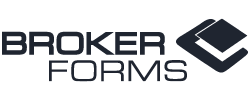Filing Resources

W-2 Filing
Every employer engaged in a trade or business who pays remuneration, including non-cash payments of $600 or more for the year (all amounts if any income, social security, or Medicare tax was withheld) for services performed by an employee must file a Form W-2 for each employee (even if the employee is related to the employer) from whom:
- Income, social security, or Medicare tax was withheld.
- Income tax would have been withheld if the employee had claimed no more than one withholding allowance or had not claimed exemption from withholding on Form W-4, Employee's Withholding Allowance Certificate.
W-2 Filing Copies & Requirements
If your business is required to file Form W-2, you will need to provide multiple copies. To avoid penalties, make sure to send the correct copy to the correct audience - when applicable.
Copy A
For Social Security Administration.
Copy B
Filed with Employee's Federal Tax Return.
Copy C
For Employee's Records.
Copy D
For Employer.
Copy 1
For State, City, or Local Department.
Copy 2
Filed with Employee's State, City, or Local Income Tax Return.

E-File Threshold
If you need to file more than 250 W-2 Copy A forms, you are required to file electronically with the SSA.

Federal Transmittal
In addition to filing Form W-2 to the SSA, you may be required to file a transmittal (cover sheet). If you are sending paper copies to the IRS you will need to include Form W-3. This transmittal is not required if you are filing electronically.

1099 Filing
If your business made payments for services performed for a trade or business by people not treated as its employees you may need to file Form 1099-MISC. Usually, businesses file Form 1099-MISC when they need to report miscellaneous income for payments of $600 by people not treated as its employees. Common 1099-MISC filing examples include:
- Substitute dividends and tax-exempt interest payments reportable by brokers.
- Fees to subcontractors or directors and golden parachute payments.
- Fish purchases paid in cash for resale.
- Gross proceeds paid to attorneys.
- Crop insurance proceeds.
1099 Copies & Requirements
If your business is required to file Form 1099-MISC, you will need to provide multiple copies. To avoid penalties, make sure to send the correct copy to the correct audience - when applicable.
Copy A
For Social Security Administration.
Copy B
Filed with Employee's Federal Tax Return.
Copy C
For Employee's Records.
Copy D
For Employer.
Copy 1
For State, City, or Local Department.
Copy 2
Filed with Employee's State, City, or Local Income Tax Return.

E-File Threshold
If you need to file more than 250 1099-MISC forms, you are required to file electronically with the IRS.

Federal Transmittal
In addition to filing Form 1099-MISC to the IRS, you may be required to file a transmittal (cover sheet). If you are sending paper copies to the IRS you will need to include Form 1096. This transmittal is not required if you are filing electronically.

1095 Filing & Form Types
By now most businesses and insurance companies are familiar with the Patient Protection and Affordable Care Act (PPACA), sometimes referred to as ACA or ObamaCare. Beginning in 2016, employers and insurers are required to:
- File to IRS (must e-file if over 250).
- Send copies to recipients/employees.

1095-B
The Internal Revenue Code (IRC) Section 6055 outlines the requirements for 1095-B filing. Form 1095-B must be issued by the insurance company (or self-insured employer) to the individual and the IRS as proof of coverage. Form 1094-B is the related transmittal sent to the IRS.

1095-C
IRC Section 6056 defines the filing requirements for large employers (50 or more full-time employees including full-time equivalent employees) to provide their employees with documentation outlining any applicable offer of health coverage. Form 1095-C is a statement issued by employers with 50 or more full time employees (including FTEs) to employees and the IRS. Form 1094-C is the related transmittal sent to the IRS.
